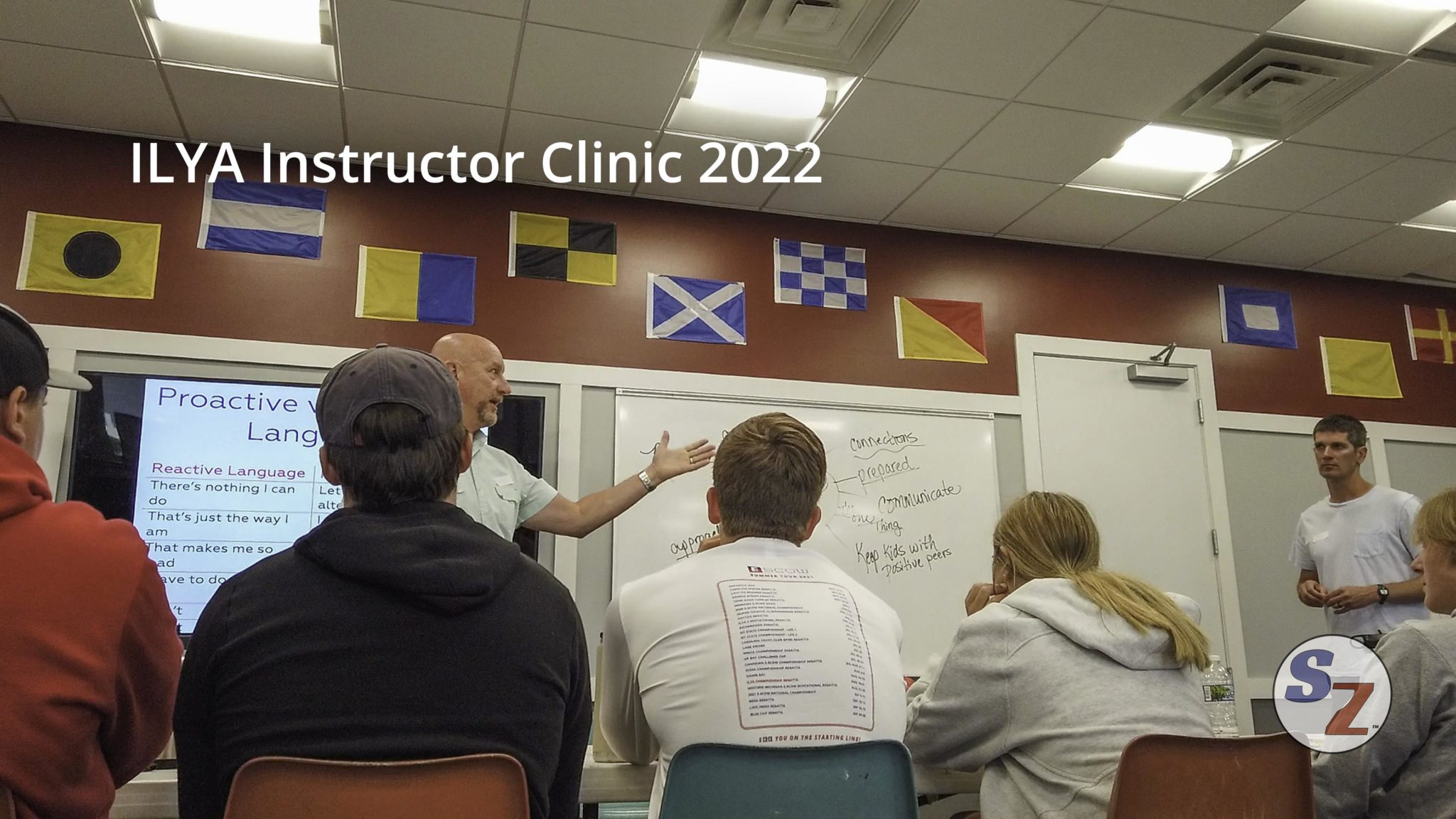How do you build excellence and inclusiveness in your sailing team? The Inland Lake Yachting Association (ILYA) sponsored a clinic for instructors on this topic. Mark Maas and Chad Carstens, two successful local high school coaches led the discussion.
Mark and Chad are not sailors, but their coaching accomplishments are well-known in the area. Beyond his winning record, Mark is renowned for his coaching style and methods. Chad is known for athlete-centered coaching.
Here’s a summary of the key points in the discussion. Thanks to the ILYA for sponsoring this effort!
Excellence and Inclusiveness – Building a Culture
If you think your only job is to be a conduit of information, you’re missing out on unbelievable opportunities to impact your team. Your job is to create a culture – one of excellence and inclusiveness – so the kids can thrive and develop their own passion for the sport. Here are four key elements of this culture.
#1. Develop Positive Attitudes
“Everything can be taken from a man but one thing: the last of human freedoms – to choose one’s attitude in any given set of circumstances, to choose one’s own way.” – Viktor E. Frankl
Start with your own attitude. Every single day you can decide what your day is going to be, no matter what happened before. To build excellence and inclusiveness choose “above the line” attitudes and avoid those “below the line.”
- We all go below the line sometimes, but the key is to be able to bounce back up above.
- Self-reflect to assess where your mind is driving you.
- When there is a problem, use your above the line attitude to “find the light.”
Language Reflects Attitude
Words matter. Positive “proactive” language reflects “above the line” attitudes. Negative “reactive” language is below the line.
#2. Build Relationships
With Parents
It’s tempting to feel that some parents are the problem. This is a dangerous attitude. Parents want what’s best for their kids and they act for reasons that you may not understand.

- Be friendly and open with parents to set a good tone.
- Communicate early if there’s a problem.
- Anticipate parents’ need to know. Example: At the end of the day, anticipate the parent asking what they learned that day. Prepare for that by asking the students what one thing they learned.
- Don’t argue with parents (or sailors). Maintain the high ground. Once you argue, you have gone “below the line.”
- Listen carefully.
- Make your expectations or reasons for action clear in a calm manner.
- End the conversation if necessary. You could say something like, “I’d like to preserve our relationship rather than argue with you.”
With Sailors
- Be approachable and personable. Make them laugh and don’t let them get bored. Have fun, but get work done too.
- Make sure your students know you care about them and want them to improve.
- Keep kids with other positive peers.
- Give small, positive feedback regularly.
- Don’t argue with sailors (same reasons as for not arguing with parents).
- Don’t use sarcasm. Sarcasm usually elicits a laugh. However, it also encourages more sarcasm. Sarcasm is a relationship destroyer. It’s like punching someone in the face, but with words.
- Nicknames can be a source of sarcasm. The rest of the class will often latch on to an unfavorable nickname. If you use nicknames, make sure they’re positive.
With Co-Workers
- Staff that is cohesive, on the same page, and helps each other will the team the best it can be. If someone is struggling, pick them up.
- Data shows that “toxic” interactions between teachers and other staff can lead to reduced student test scores.
- It’s good to have positive relationships with coaches from other schools. You can compete hard, but still respect each other and be friendly. Be a role model in this. Don’t wait for someone else to be it.
#3. Set Expectations and Give Feedback
- Set ground rules. Everyone needs to stay true to the ground rules – even and especially the instructor.
- Give feedback. Try to use the “sandwich” method: Positive – Instructive – Positive.
- Have correction talks one-on-one, not in the group, if possible.
- If there’s a problem, reach out to the parents.
- You may not feel comfortable speaking with some parents, but it’s a mistake not to.
- If you wait until you are totally frustrated with a student before speaking with the parent, the first will be, “Why didn’t you tell me sooner?”
#4. Build a Foundation of Excellence
- Expect excellence in everything. Little things add up to big things.
- Be overprepared. Know what you want to achieve and make a plan to get there. If kids are not getting a skill, be ready with alternate approaches.
- Make sure to get the fundamentals rock solid. Parents and instructors can sometimes be too eager to get to the more challenging skills, but the fundamentals haven’t become reflex yet.
Related Content
A Biography of Victor Kovalenko: Book Review – Kovalenko is a highly successful Olympic coach
Teaching and Coaching Fundamental Online – U.S. Sailing online course for instructors





